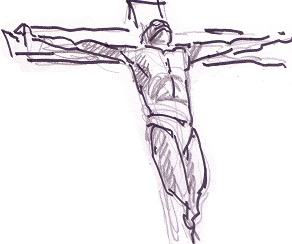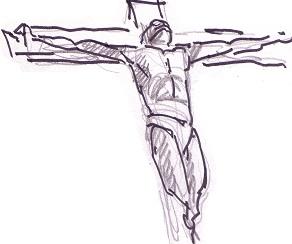

“Am I my brother’s keeper?” (Genesis 4:10).
Gen 4:1-15,25: Mark 8:11-13
Many important biblical stories begin with “A man had two sons,” brothers whose conflicts are like forks in the road of history going in different directions. Abraham fathers Ishmael by Hagar and Isaac by Sarah. Isaac and Rachel have Esau and Jacob, twins battling from the womb for the first blessing. But the first of these rival brothers are Cain and Abel, the sons of Adam and Eve.
Cain is a tragic figure, the first human being conceived and born naturally and the first murderer. He is envious of God’s praise for his brother’s offering, lures him into the field and kills him. Like his parents’ sin in the garden, Cain cannot hide from God, and when God asks him about Abel, he utters the famous question, “Am I my brother’s keeper?”
The story may be rooted in a quarrel between peasants and herdsmen over whether animal sacrifice was better than cereal offerings, but like other biblical themes, the murder of Abel endures in the Bible as a symbol of the innocent victim whose death becomes a sign of God’s redemptive plan. Cain persists in literature as the Stranger, the Fugitive, the alienated outcast, the marked man who wanders the earth without solace or rest.
Two competing signs become threads in salvation history, one symbolizing failure and the other triumph. Cain bears the mark of the murderer that preserves his guilt but also protects him from retribution, while Abel becomes the sign of the cross, the redemptive death of Jesus, the shepherd struck down out of envy. When the scribes and Pharisees seek a sign that Jesus is from God, they do not realize that the sign they will receive is the cross. They look upon the one they murder, but do not understand that Jesus was the Messiah, the Paschal Lamb, the Good Shepherd, all figures that began with Abel, whose blood both judges the sin and saves the sinners.
The scribes and Pharisees argue with Jesus because they envy his charismatic appeal and grace in contrast to their dead-letter legalism and stern self-righteousness. They must bring him down to justify their appointed status as gatekeepers to God. But their pride has blinded them to the self-evident presence of God in Jesus. They exhibit the same closed mind that prevents Saul from seeing the obvious until he is reborn as Paul on the road to Damascus. The more Jesus reveals God’s favor, the more they hate him. Only when they crucify Jesus do they realize that they have cast themselves into the outer darkness, unable to pray or find rest. This is the fate of all murderers, haunted every night by the blood of their victims.
Jesus sighs from the depth of his spirit when they ask for a sign. Only the Holy Spirit can save those who refuse to accept him. This is why Jesus saves his last breath from the cross to forgive his enemies.
Advertisement








